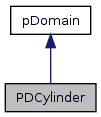
#include <pDomain.h>

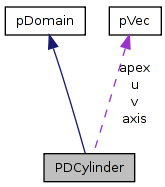
Public Member Functions | |
| PDCylinder (const pVec &e0, const pVec &e1, const float radOut0, const float radIn0=0.0f) | |
| ~PDCylinder () | |
| bool | Within (const pVec &pos) const |
| pVec | Generate () const |
| pDomain * | copy () const |
Public Attributes | |
| pVec | apex |
| pVec | axis |
| pVec | u |
| pVec | v |
| float | len |
| float | radOut |
| float | radIn |
| float | radOutSqr |
| float | radInSqr |
| float | radDif |
| float | axisLenInvSqr |
| bool | ThinShell |
Definition at line 272 of file pDomain.h.
| PDCylinder::PDCylinder | ( | const pVec & | e0, | |
| const pVec & | e1, | |||
| const float | radOut0, | |||
| const float | radIn0 = 0.0f | |||
| ) | [inline] |
Definition at line 280 of file pDomain.h.
References apex, axis, axisLenInvSqr, fabsf(), fsqr(), pVec::length2(), pVec::normalize(), radDif, radIn, radInSqr, radOut, radOutSqr, sqrtf(), ThinShell, u, and v.
Referenced by copy().
00281 { 00282 apex = e0; 00283 axis = e1 - e0; 00284 00285 if(radOut0 < radIn0) { 00286 radOut = radIn0; radIn = radOut0; 00287 } else { 00288 radOut = radOut0; radIn = radIn0; 00289 } 00290 radOutSqr = fsqr(radOut); 00291 radInSqr = fsqr(radIn); 00292 00293 ThinShell = (radIn == radOut); 00294 radDif = radOut - radIn; 00295 00296 // Given an arbitrary nonzero vector n, make two orthonormal 00297 // vectors u and v forming a frame [u,v,n.normalize()]. 00298 pVec n = axis; 00299 float axisLenSqr = axis.length2(); 00300 axisLenInvSqr = axisLenSqr ? (1.0f / axisLenSqr) : 0.0f; 00301 n *= sqrtf(axisLenInvSqr); 00302 00303 // Find a vector orthogonal to n. 00304 pVec basis(1.0f, 0.0f, 0.0f); 00305 if (fabsf(basis * n) > 0.999f) 00306 basis = pVec(0.0f, 1.0f, 0.0f); 00307 00308 // Project away N component, normalize and cross to get 00309 // second orthonormal vector. 00310 u = basis - n * (basis * n); 00311 u.normalize(); 00312 v = Cross(n, u); 00313 }
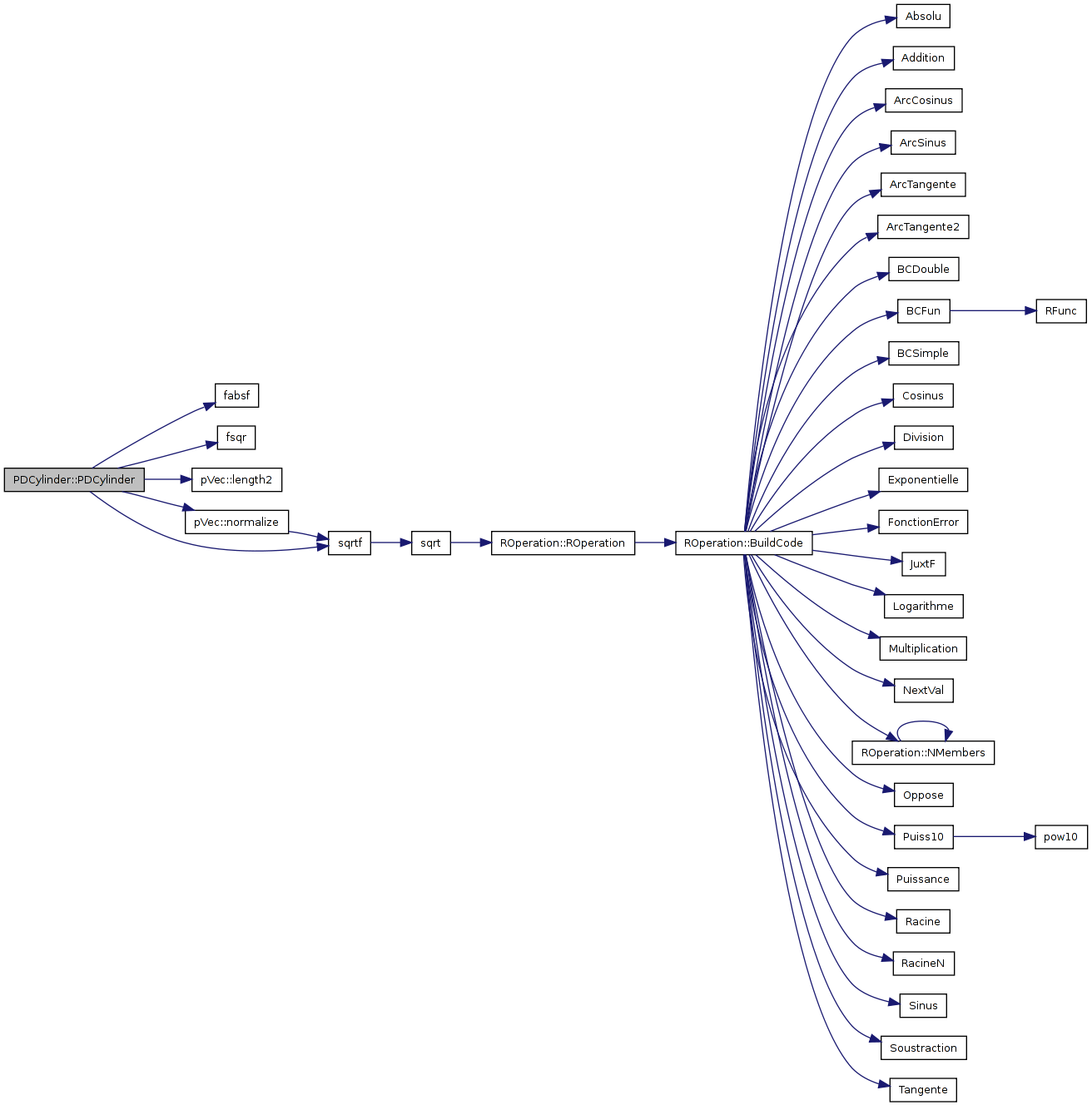

| bool PDCylinder::Within | ( | const pVec & | pos | ) | const [inline, virtual] |
Implements pDomain.
Definition at line 319 of file pDomain.h.
References apex, axis, axisLenInvSqr, pVec::length2(), radOutSqr, and x.
00320 { 00321 // This is painful and slow. Might be better to do quick accept/reject tests. 00322 // Axis is vector from base to tip of the cylinder. 00323 // x is vector from base to pos. 00324 // x . axis 00325 // dist = ---------- = projected distance of x along the axis 00326 // axis. axis ranging from 0 (base) to 1 (tip) 00327 // 00328 // rad = x - dist * axis = projected vector of x along the base 00329 00330 pVec x = pos - apex; 00331 00332 // Check axial distance 00333 float dist = (axis * x) * axisLenInvSqr; 00334 if(dist < 0.0f || dist > 1.0f) 00335 return false; 00336 00337 // Check radial distance 00338 pVec xrad = x - axis * dist; // Radial component of x 00339 float rSqr = xrad.length2(); 00340 00341 return (rSqr <= radInSqr && rSqr >= radOutSqr); 00342 }

| pVec PDCylinder::Generate | ( | ) | const [inline, virtual] |
Implements pDomain.
Definition at line 344 of file pDomain.h.
References apex, axis, cosf(), M_PI, pos, pRandf, radDif, radIn, sinf(), u, v, and x.
00345 { 00346 float dist = pRandf(); // Distance between base and tip 00347 float theta = pRandf() * 2.0f * float(M_PI); // Angle around axis 00348 // Distance from axis 00349 float r = radIn + pRandf() * radDif; 00350 00351 // Another way to do this is to choose a random point in a square and keep it if it's in the circle. 00352 float x = r * cosf(theta); 00353 float y = r * sinf(theta); 00354 00355 pVec pos = apex + axis * dist + u * x + v * y; 00356 return pos; 00357 }
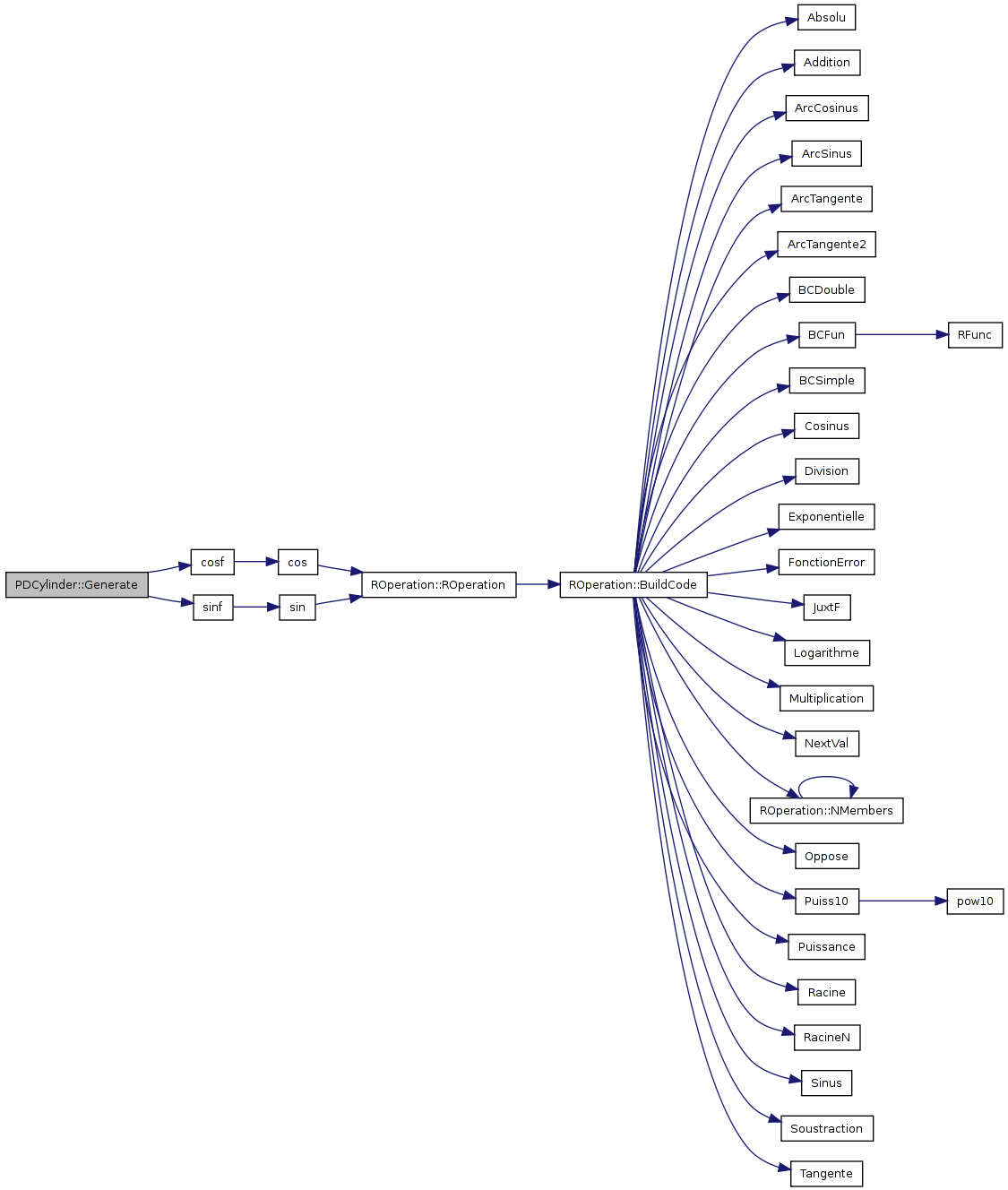
| pDomain* PDCylinder::copy | ( | ) | const [inline, virtual] |
Implements pDomain.
Definition at line 359 of file pDomain.h.
References PDCylinder().
00360 { 00361 PDCylinder *P = new PDCylinder(*this); 00362 return P; 00363 }
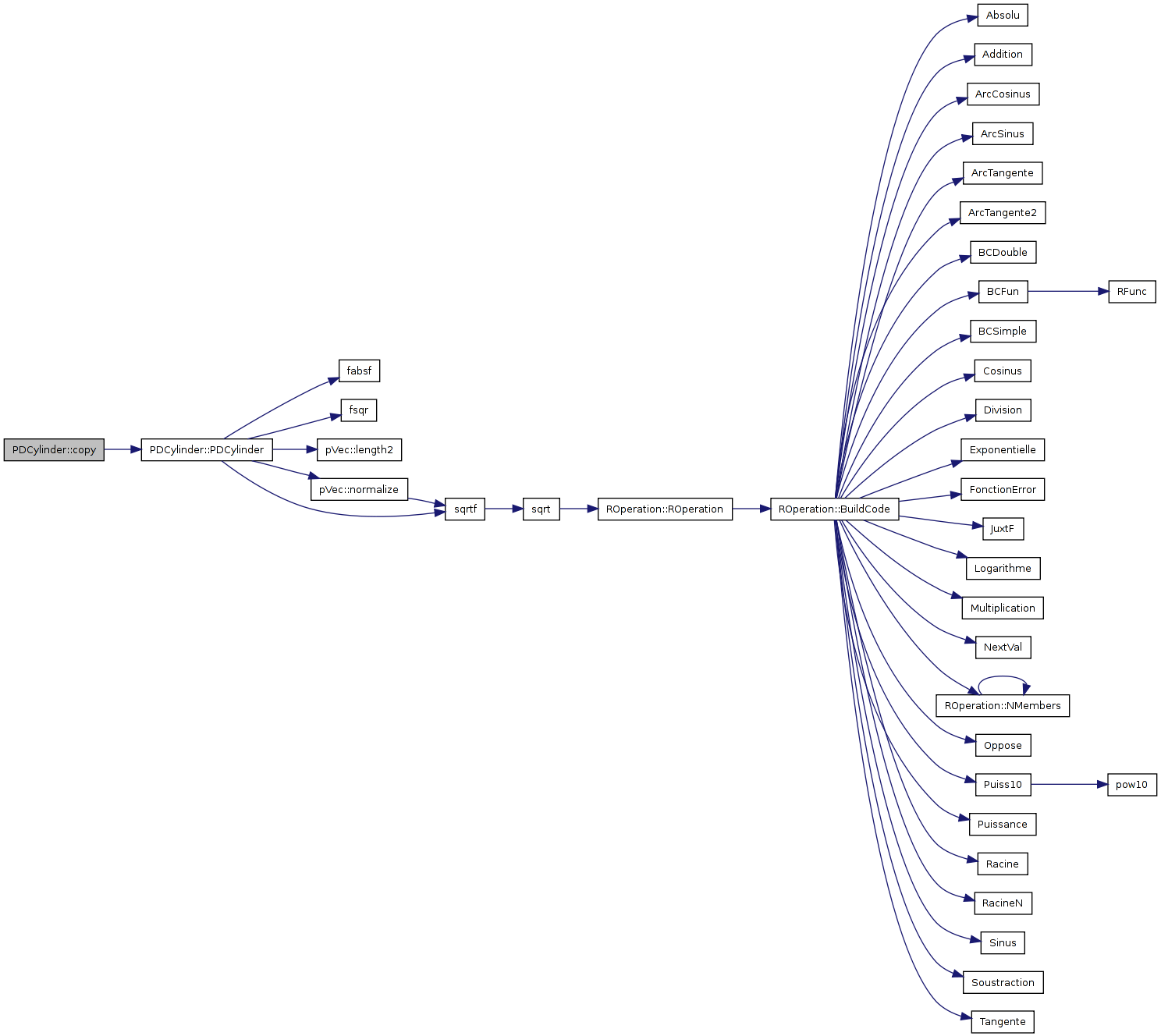
| float PDCylinder::len |
| float PDCylinder::radOut |
| float PDCylinder::radIn |
| float PDCylinder::radOutSqr |
| float PDCylinder::radInSqr |
| float PDCylinder::radDif |
 1.5.4
1.5.4